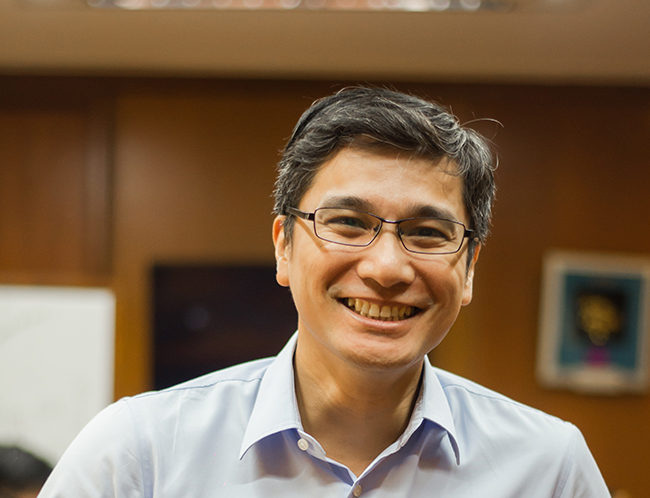Wednesday 26 August 2020 5:29pm

University of Otago National Centre for Peace and Conflict Studies PhD candidate Nick Tobia was part of a team that won this year’s NASA Space Apps COVID-19 Challenge.
Every year, NASA organises a competitive data challenge to promote the analysis and use of open source satellite data.
During the special COVID-19 edition of the annual “hackathon” competition earlier this year, Mr Tobia and his team created an app for policy makers and economic planners that measures the environmental and economic impact of COVID-19 on various countries, and the different signatures of recovery around the world.
The team’s entry, GIDEON (Global Impact Detection from Emitted Light, Onset of Covid-19, and Nitrogen Dioxide), combined night light and nitrogen dioxide data from satellites, newsfeeds, Google mobility data, and COVID cases to show the multi-dimensional impact of government-mandated lockdowns and societal recovery.
“One constant challenge of economic data is it lags behind events. In the 12 weeks between periodic quarterly economic reports, the impact of the pandemic is immediately observable on the ground,” he says.
“By combining information from a number of sources in a public policy information portal, decision makers potentially have better access to data so they can make necessary and timely inter-agency economic corrections to limit impacts on their societies.”
After facing off against over 15,000 other competitors and over 1,400 entries from around the globe, GIDEON was named one of six global winners, receiving the prize for Best Use of Data. GIDEON was also one of three winners of the Euro Data Cube Award, an honour given to groups whose solutions are ready to be scaled-up and applied internationally.
Evaluating on the basis of country-level economic recovery, pandemic management and environmental management, Nick’s group concluded that, at the time, Singapore and Japan seemed to be the ideal templates to follow.
“They contained COVID cases while restarting their economy with the least damage to the environment. While the negative GDP growth numbers are serious, the gradual uptick in mobility suggests that their economies are reactivating, but in a manner that is not triggering another wave of infections and maintaining relatively lower levels of pollution.
“We now know, with more recent data, that Japan had not managed to contain a subsequent wave of infections. This only demonstrates how rapidly changing circumstances require instantaneous data indicators.
“Not all governments applied lockdowns, and no two lockdowns were implemented the same way, but using earth observation data – which provides a constant stream of insights in real-time, like night lights and NO2 levels – GIDEON could nowcast the current impact and forecast the likely outcome of lockdowns on nations’ economies. No country can survive a permanent lockdown, and eventually, governments will have to ease their restrictions.”
Nick’s team, comprised of colleagues from the Philippine-based social impact data analytics firm Cirrolytix are Helen Mary Barrameda, Kristel Joyce Zapata, Theresa Rosario Tan, and Miguel Oscar Castelo. Nick is currently unable to return to New Zealand due to COVID-19 restrictions.
At NCPACS, Nick’s supervisors are Director Dr Richard Jackson and Dr Sung Yong Lee. His thesis is entitled Democratic endorsement of peace agreements: Uncovering the liberal-democratic paradox of peace processes.
About: The annual Space Apps Challenge competition is jointly sponsored by NASA and leading space agencies from Canada, Japan and Europe. This year, the agencies held a special COVID-related edition of the international hackathon, which normally takes place around the world and online every October. Since 2012, teams have engaged with NASA’s free and open data to address real-world problems on Earth and in space. Last year, Space Apps saw more than 29,000 participants in 71 countries develop more than 2,000 hackathon solutions over one weekend.
GIDEON used VIIRS satellite for night light data, and Sentinel-5p satellite for nitrogen dioxide readings to monitor which countries keep air quality under control as they bounce back from lockdown and pave the way for the "new normal”. In addition, GIDEON uses Google mobility reports, global infection data from Johns Hopkins University, and news data scraped directly from the internet.